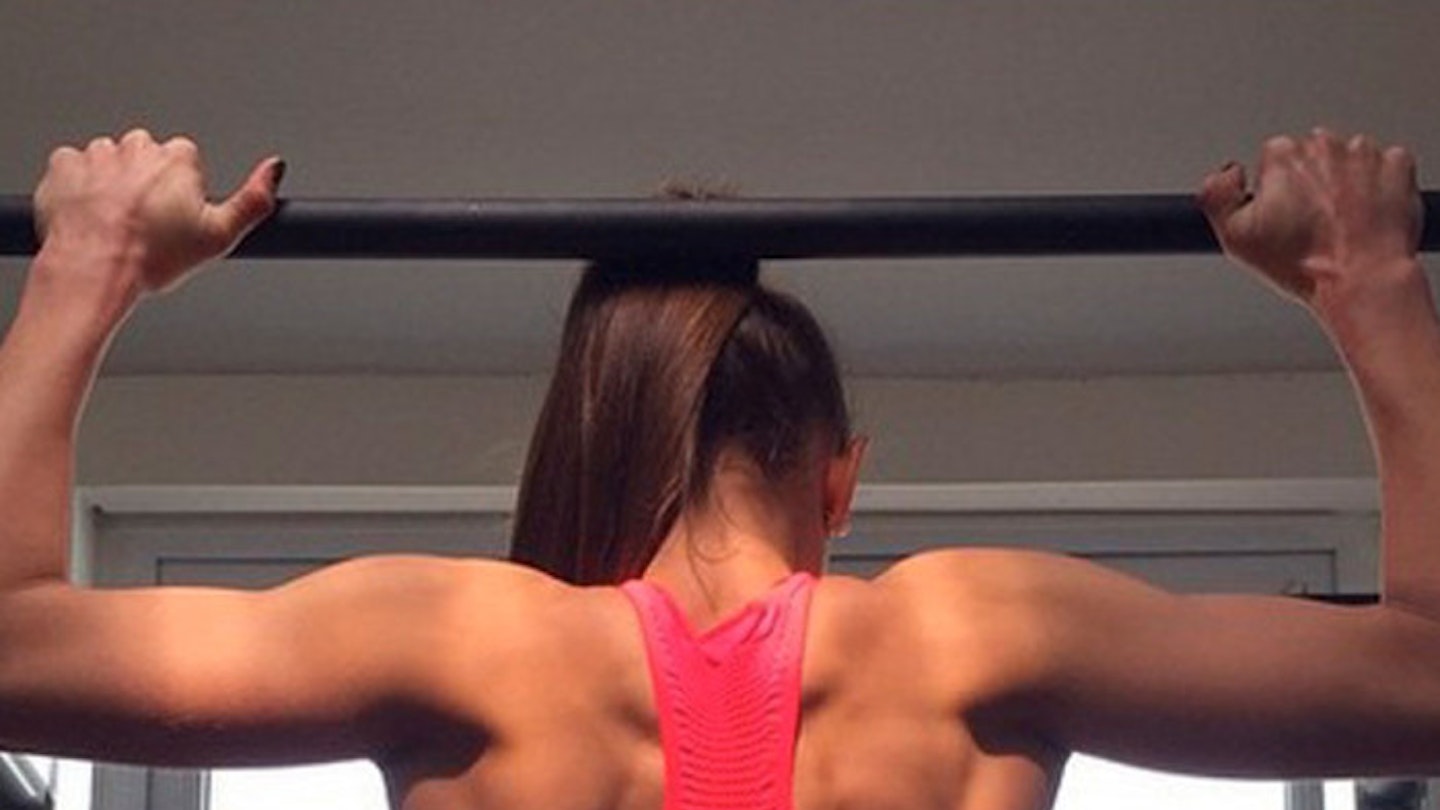As fitness blogger Celia Learmonth admitted last week that she's seeking help for an eating disorder, Grazia examines the rise of 'Instarexics'...
Since Gwyneth Paltrow’s Goop blog monopolised the online wellness world just a few years ago, health and fitness bloggers have been taking over social media, one slice of avocado toast and gym selfie at a time. But just how safe, not to mention responsible, are many of the health mantras that are being ‘liked’ and shared by thousands of followers?
It was the question being asked last week, when 21-year-old fitness blogger Celia Learmonth (founder of exercise site London Fitness Guide) revealed to her 20,000 Instagram followers, ‘I’m trying to get help at an eating disorder clinic. I’ve always wanted to be as authentic and honest as possible and this is the truth. I’m not perfect. I’m a work in progress, and I want people to know that.’ Prior to that post, Celia regularly updated her followers with her recipes for ‘protein porridge’ and her favourite exercise classes, posting pictures of herself embarking on or emerging from lengthy, rigorous classes.
Her words last week were brave and honest. But how many other health and fitness bloggers – with their beautifully shot workout selfies, yoga mats and green juices – are as candid? How many others are, perhaps, also struggling with disordered eating? How accurate is the information they’re sharing with their huge followings? And what message are their seemingly perfect lives (and bodies) sending to their often young and impressionable followers?
For Jenny*, 22, it was the push over the edge she didn’t need. ‘I discovered the hashtag #fitspo on Instagram a year ago, and this led me to start following a series of healthy eating and fitness blogs. They were great to begin with – inspiring me to get down to the gym and cut out junk food. But things started to spiral after a couple of months. I was checking Instagram several times a day and feeling so bad about myself – comparing myself to what I could see in these perfect images. I was obsessed with the fact that these women seemed so in control of their bodies and I wasn’t.’
‘Health has never been more talked about and nowhere is this more apparent than on social media,’ says nutritional therapist Amelia Freer, author of the best-selling Eat. Nourish. Glow, whose mindful approach to eating well helped singer Sam Smith to lose weight earlier this year. He told his 3.37 million Twitter followers she ‘completely transformed my relationship with food’. Amelia – one of a number of respected bloggers, including Calgary Avansino, Danielle Walker, the Hemsleys, Christina Howells, Deliciously Ella and Natasha Corrett – adds, ‘I don’t want to knock this greater awareness of healthy eating and fitness. It’s a good thing because it encourages people to think about their health.’ However, she argues that this online phenomenon can have a downside. ‘Firstly, you have to question: how many are qualified to dispense advice to thousands of avid followers? Secondly, which ones are accountable for the advice in the way that trained professionals are?’ Amelia also questions their blanket, one-size- fits-all recommendations. ‘As a qualified nutritional therapist, I have to meet with new clients and find out about their health, diet and lifestyle before I can give them personal and tailored advice.’

Amelia suggests that followers of such sites should question how real what they’re seeing actually is. ‘Many of these bloggers have photographers taking photos of their beautifully prepared meals and can filter images of themselves in a bikini,’ she says.
The question of the accuracy of some blogs was highlighted earlier this year in a high-profile case in Australia. Wellness and lifestyle blogger Belle Gibson built up several thousand online followers after sharing the story of her brain tumour, plus liver, kidney and blood cancer (among other types). The 23-year-old claimed she gave up on chemotherapy after eight weeks and turned to exercise and a plant-based, gluten, dairy and caffeine-free diet instead. She claimed her ‘clean’ diet, along with regular colonics and alternative medicine, shrank her tumour. Off the back of her remarkable story and online following, she secured a deal to write a smartphone recipe app, called The Whole Pantry (which had 200,000 downloads in its first month of release), which led to a best-selling cookbook of the same name. However, cracks started to appear in Belle’s story after money that she had claimed to have donated to charity failed to materialise. In March, she admitted that the entire story of her cancer and the clean-eating cure was a lie.
This was an extreme case but one that raises serious questions. ‘A lot of these blogs are preaching perfection and that just isn’t right or realistic,’ says Amelia. ‘They should have a responsibility to present a more realistic image, but a lot of them are “chasing followers” – in other words, they want to present the most perfect picture possible because it results in more followers, which can boost their career and lead to other things, like book deals.’ So has fitspo now become a more acceptable term for ‘thinspo’ (which Instagram banned as a hashtag), but taken to the extreme?
'A lot of these blogs are preaching perfection and that just isn't right or realistic'
According to a new study from Flinders University in Adelaide, Australia, fitness bloggers are now overtaking celebrities as role models for teenage girls. Researchers found that many of the girls interviewed felt bad about their body image after looking at these blogs. Rebecca Field, from eating disorder charity Beat (b-eat.co.uk) told Grazia, ‘We feel the surge of online health bloggers and sites can normalise disordered eating and exercise, which can lead on to eating disorders. While it’s a good thing to raise awareness of health, it can also encourage behaviour associated with disordered eating, like obsessive food rituals, excessive exercise, cutting out food groups like carbs or dairy to lose weight, or diet and weight-loss competitiveness. Of course, these sites aren’t the sole cause of eating disorders, but they can be harmful to vulnerable women.’ Rebecca suggests anyone wanting to improve their health or get into exercise should take advice from a registered, qualified and accountable source, such as a nutritional therapist, dietitian or qualified personal trainer.
A-list trainer James Duigan told Grazia he’s worried about a lot of the online fitness advice out there. ‘I’ve seen fitness and wellness bloggers – who are incredibly young and I’m guessing fairly inexperienced in personal training – telling their followers to do the kind of extreme and exhausting exercise regime I would never recommend to a client. It’s worrying and dangerous and these bloggers just aren’t accountable.’
Of course, it’s down to us to be realistic about our own health and fitness goals – keeping in mind that getting our fitspo online may not always be a good idea. As James says, ‘Just because somebody has a million followers on Instagram and looks good in a bikini doesn’t mean they’re qualified to talk about fitness and health.’
